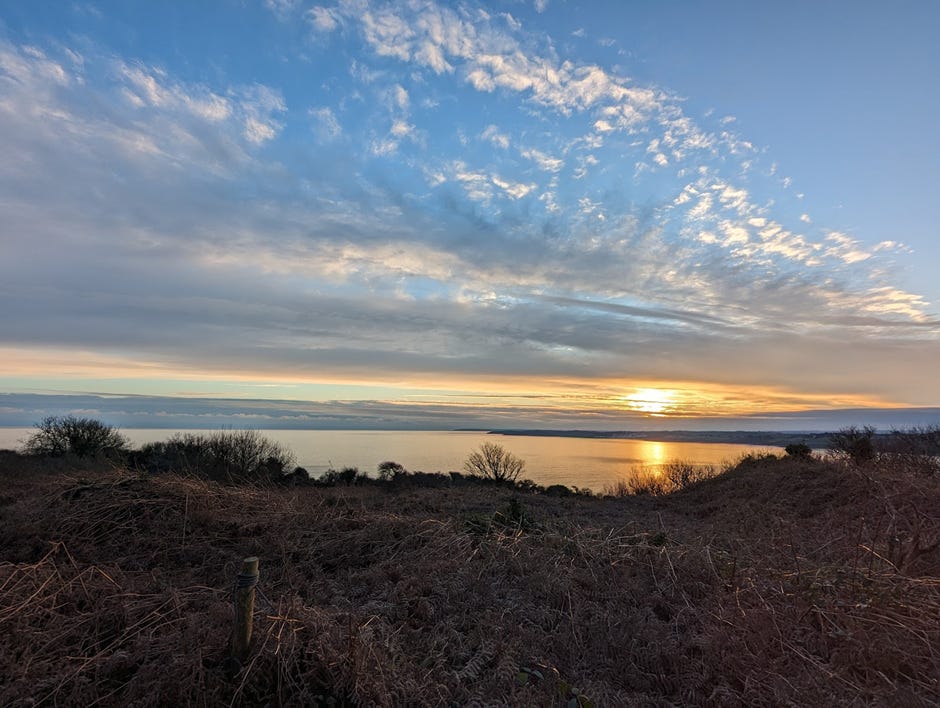My new book is out - buy it please!
It began as all the best things do, with a cup of tea. I met up with the wonderful Caroline (Hardman, my agent) at Somerset House. We discussed my first book Infectious and drifted onto the subject of whether I would consider penning another. I’d not really intended to, it wasn’t necessarily a small undertaking – consuming nearly every weekend for 9 months (admittedly this was during the worst of lockdown, when frankly there was nothing to do anyway!).
Infectious, unsurprisingly, covered infectious disease and the many ways in which you can die. I’d started it with the cheery statement: ‘Nature wants you dead.’ But the main point of Infectious was that thanks to science, far fewer people died following infection – even at the peak of the pandemic.
‘So what do people die of then?’ was the follow up question that launched Live Forever; which then morphed into – what might I die of? This had begun to plague me a bit, the signs of ageing beginning to creep up on me – holding my phone further from my face, the odd grey hair, the daily aches and pains. So I set out to explore my proximal causes of mortality and importantly if there was anything I could do about it.
In this I had some assistance from the many scientific experts at Imperial with whom I discussed the details of disease. But because there was more about me in the book, it took a different direction. The first difference was that I undertook a number of self-experiments to test all those things that wellness gurus suggest might help delay death (extreme diets, cold water swimming, feeding kimchi to my microbiome). The second was in the structure of the book. It became a narrative journey. In this aspect I was very fortunate to meet the screenwriter (and actor) Ben Willbond. We were at a history festival together and I screwed up the courage to ask him about how he writes episodes. He directed me towards Will Storr’s excellent book The science of storytelling. He also nudged the book onwards when maybe the science got too heavy and the story too light. Critically he introduced me to the idea of the 4th act, but you’ll have to read Live Forever (out today) to see if I quite landed it. He wasn’t the only person from the creative side who helped with suggestions of process – the conversations led to an article we published in Nature which I am reasonably sure is the only one in that esteemed journal to ever feature Schrodinger’s cat’s butthole.

Writing a second book, even though it was on a different topic to the last book and one notch removed from my normal research, was definitely easier. The first I really had no idea what lay ahead of me. This time I had some routines and knew the absolute need to just keep writing. 9 months seems quite long at the beginning, but it slips away and that need to get 5,000 words down every weekend doesn’t go away, you just end up having to play catch up the following week.
One of the things I really loved this time was discovering new facts. Which I then shared with my family and work colleagues. Often several times. ‘Did you know that…’ induced a Pavlovian reaction in them. I stand by some of the facts being both funny and interesting. The people who had to endure them as they were honed may disagree. My absolute favourite page has 10 different sausage jokes on; each of them high quality eye-rollers. Though when I asked my editor 'Are there too many dick jokes'; I was pretty sure that was not a conversation George Elliott ever had.
One of the highlights of the writing time was that I took on a writing retreat in Cornwall. This may sound really pretentious, and it was. But it was also extraordinarily productive. I wrote 15,000 words and then proceeded to cut 30,000 words from the final draft. I was blessed with a perfect winter’s week of crisp skies and beautiful sunrises. I got to run every day. The only person I met was the publican, the owner of the local shop and the same woman walking her dog who I bumped into twice.
I would strongly recommend taking time out to do something you love, though it does rely on one key factor – familial tolerance. This book would not have happened without the ongoing support of my family. Particularly my wife who had to take up a lot of the slack whilst I was ‘creating dah-ling’. Before starting, I’d not really spoken to the rest of my family about the consequences of sequestering myself away for another year. I’d not really planned on writing another book. I have no idea if I have a third in me. But am saying thanks now – in advance.
I am slowly migrating
content onto substack.
So if you have been following
me there please follow me https://substack.com/@professortregoning


No comments:
Post a Comment